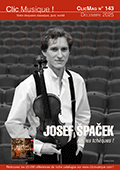 “In the sixteenth and seventeenth centuries in Europe one can witness the gradual shift from a “metaphysical” to an “embodied” view of the world: if Galileo’s scientific revolution renews man’s confidence in himself as an instrument of exploration and discovery of the universe, in the same way in music, polyphony, seen until then as a logos mirror of the divine intelligence, gradually becomes more and more secular, concentrating on the exploration of the human soul and passion. The madrigals by Claudio Monteverdi (published in collections called “Books”) clearly show, one after the other, the path taken to reach this new psychological sensitivity. The Fourth book, first published in Venice in 1603, is located right in the middle of this path, and its being wonderfully balanced between these two worlds is probably one of the reasons for its unprecedented splendor. In this process of change, which in Italian music reflects the gradual emancipation of the Italian madrigal from the Flemish school, one should note the increasingly important role played by the poetic word, which for Monteverdi became the main “creative motive.” In our interpretation of the Fourth Book, we have therefore considered the poetic text as the guiding element that defines all other musical parameters: dynamics, rhythm, colors and vocal gestures. Absolute respect of the prosody of these texts (and not only the search for clear and correct pronunciation, but also the respect of the metric, rhyme and internal assonance) has led us to look for an ever-changing tonal palette, linked to the emotional movement of the affects, and a variety of vocal gestures closely related to the meaning of the poems. In particular, taking into account the fact that Monteverdi wrote L’Orfeo, considered the first true masterpiece in the history of opera, only four years after the publication of the Fourth book, we felt it was important to seek the harmony of the whole without losing the personality and autonomy of each single voice within the madrigal: only in this way, we believe, can one underline the genius of Monteverdi, who, with a sensitivity that has few equals in the history of art, tells us with infinite love about the human soul, and the voices that inhabit it”. Luigi Gaggero
 |
